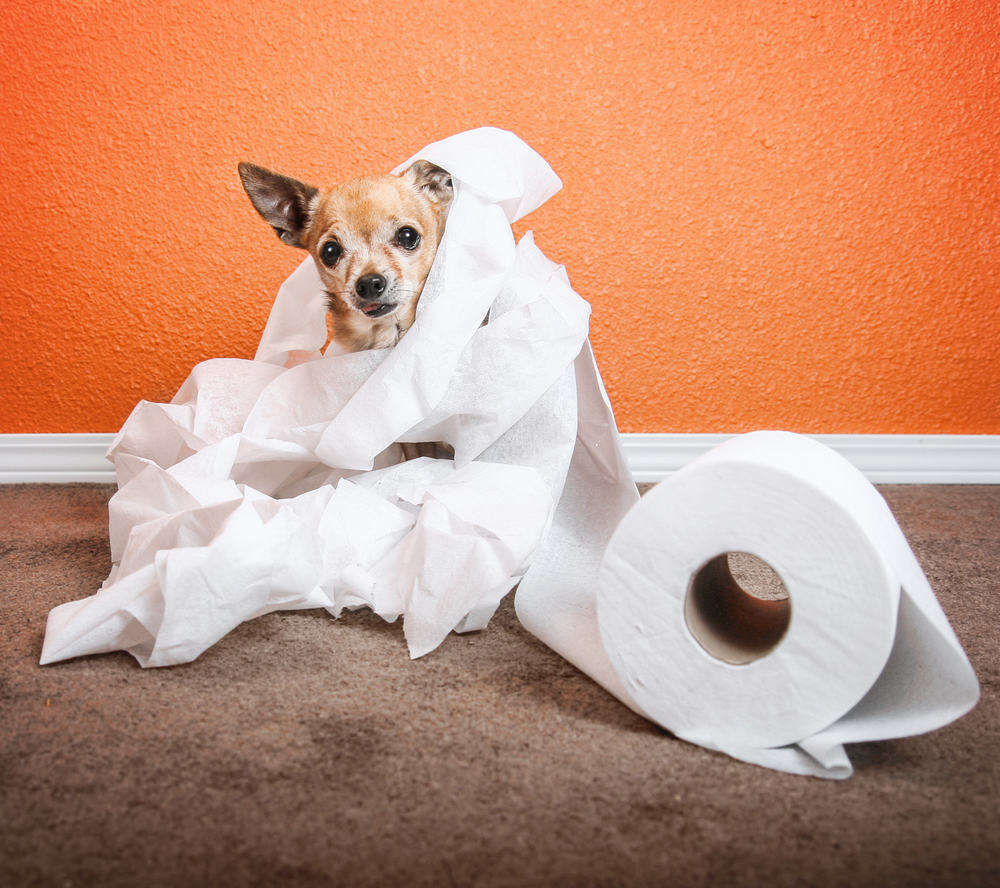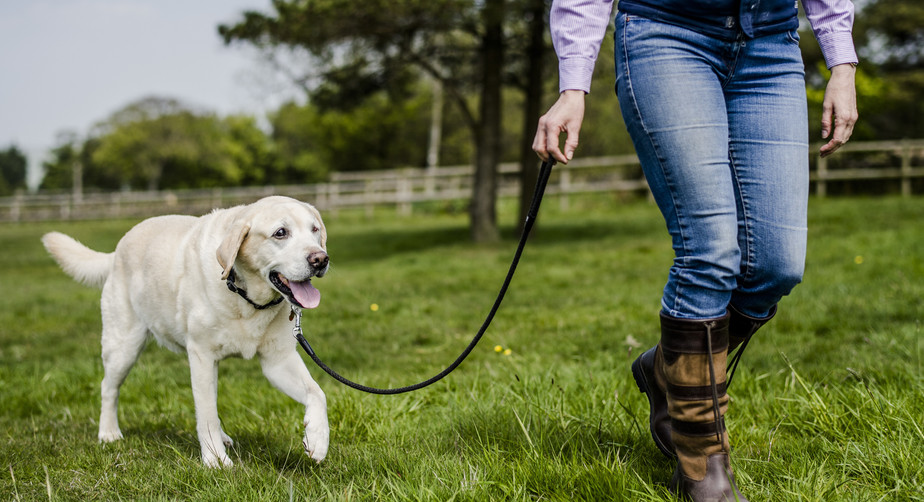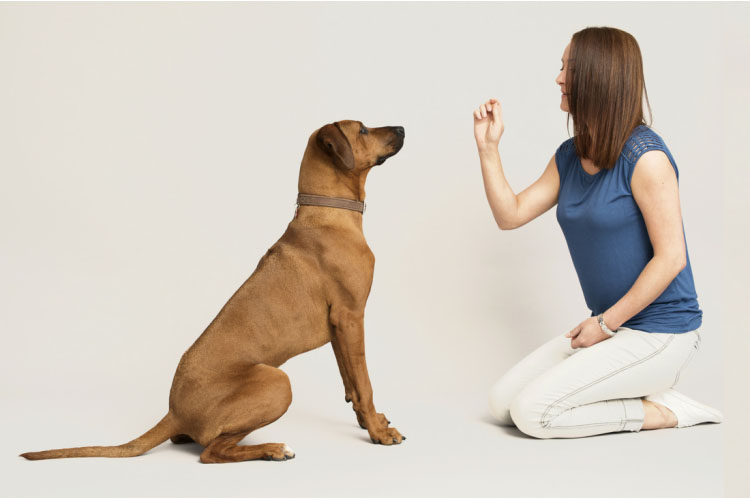Understanding these elements will successfully help you house train your dog
Veterinary Exam & Urine and Fecal Check
A clean bill of health is a large factor in housebreaking dogs, and especially new puppies. It is important to have a veterinarian check within 48 hours of receiving your new puppy or adult dog. Often regressions in house training are caused by health issues.
- Know the symptoms of cystitis, bladder infections, urinary tract infections
- A fecal check will determine whether worms or parasites are present.
Food Quality
The best diet for your puppy is one that contains live enzymes- usually a mix of wet and dry food. High-quality premium food brands do not contain by-products and have a named protein source in the first three ingredients. If you need to change your dog’s diet, a slow change–over the course of a week– often prevents stomach issues. Some dogs will benefit from the addition of a probiotic.
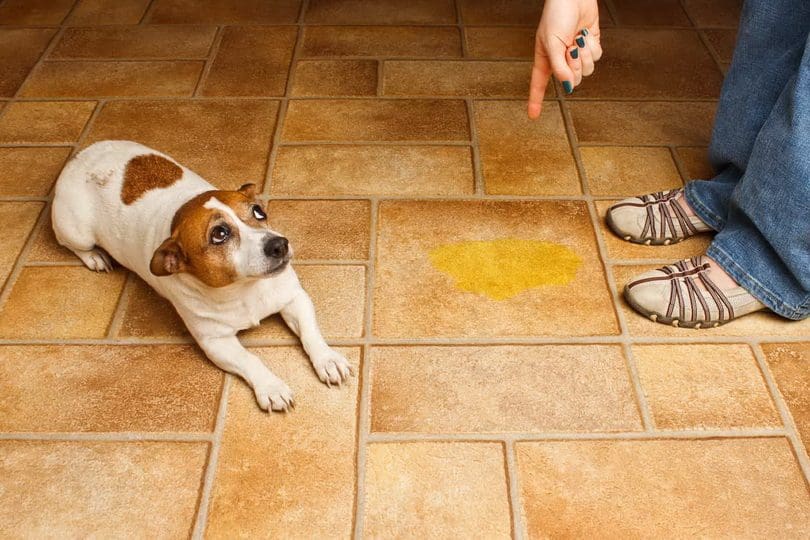
Motivators for Eliminating
Your pup will likely need to be put on pad or taken outside within five-15 minutes of doing any of the following:
- Eating or drinking
- Waking up from a nap or an overnight sleep.
- Activities like fetch and playtime, training, a playdate with another puppy, puppy zoomies
Close Supervision When Free Roaming
A young puppy is not to be trusted. If you cannot keep a close watch but would like your pup to with you, put a leash on your dog and attach to your belt loop!
- Close supervision is essential any time your puppy is not crated indoors (or confined to a small area.)
- It only takes a few seconds for your puppy to have an accident, so watch for signs that your puppy may need to eliminate, such as sniffing the floor, circling, running out of sight, or wandering away from a toy or sleeping place.
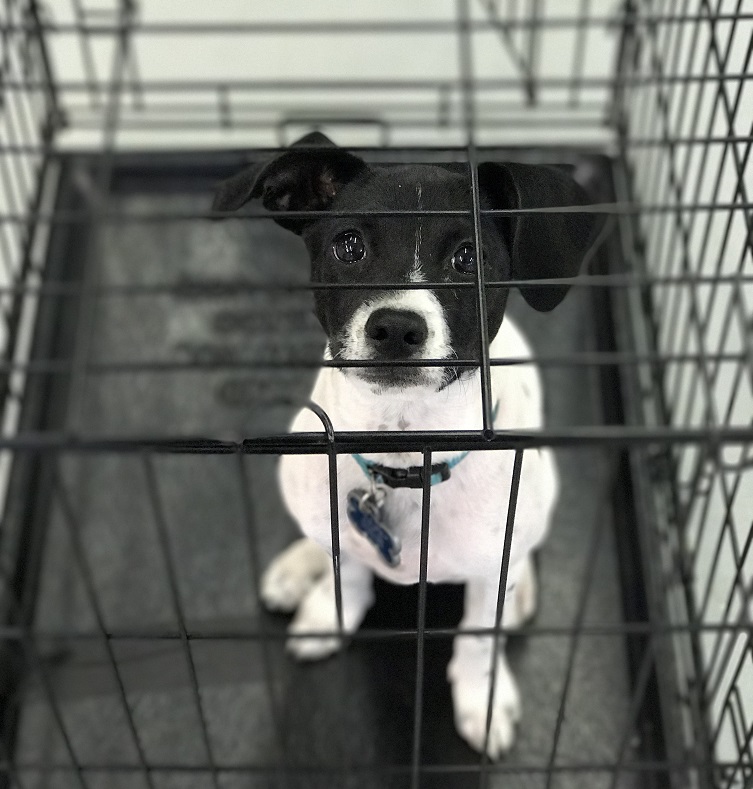
Confinement When Not Home or Unable to Watch
Confinement, whether crate or pen, is recommended for puppies and adolescent dogs when left unsupervised or alone in the house.
- When properly introduced and used appropriately, crate training is an efficient and humane way to prevent housetraining accidents and keep your puppy safe when unsupervised or alone.
- The crate should not be used for excessive periods of time, or as a punishment (although brief “time outs” in the crate can be good management. )
- Sufficient daily companionship, interactive playtime and exercise are important. Excessive periods of isolation can be very detrimental to your puppy, and can contribute to numerous behavioral problems including hyperactivity, destructive behavior, digging, self-mutilation, and excessive barking.
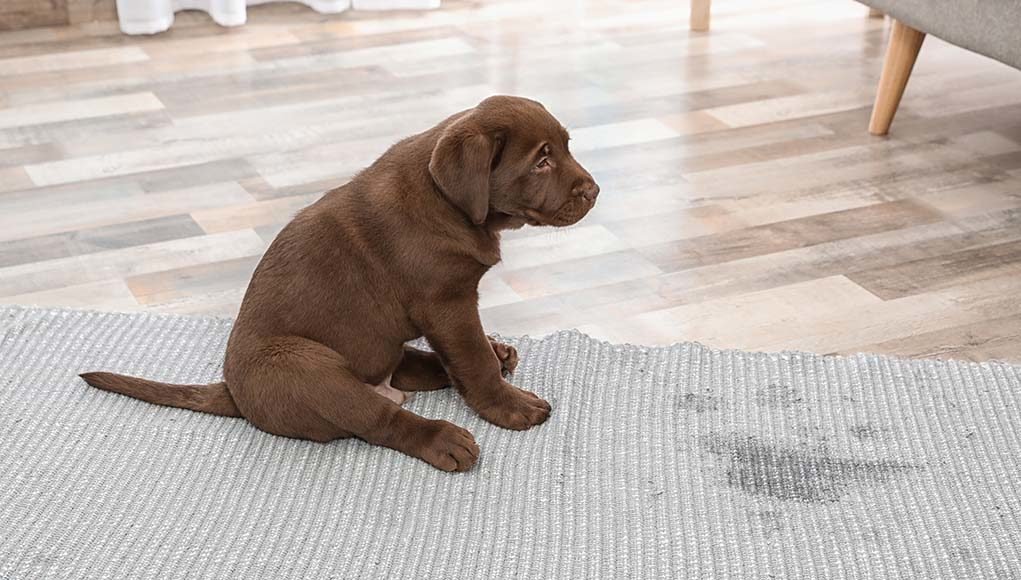
Prevent Access to Inappropriate Areas to Eliminate
Many puppies and dogs prefer certain areas or surfaces to eliminate on, such as rugs or carpeting.
- Only allow your puppy in these areas if he has recently eliminated, and he is closely supervised.
- If your puppy suddenly runs out of sight (ie: out of the room), he may be looking for a secret spot to eliminate, so make sure doors to rooms where he may sneak a quick pee or poop are closed.
Praise & Reward Your Puppy For “Going” Outdoors
Giving your puppy lavish praise and a treat reward immediately following his eliminating in the right place (newspapers, backyard, or outdoors) will help you tell your puppy that you are pleased with his behavior.
- Delayed reinforcement is not effective, so witnessing him going in the right spot and immediately rewarding is important.
- A trigger word (ie: “potty”, “get busy”etc.) said a single time can be added immediately before your puppy gets down to business to train your dog to eliminate on cue.
- Avoid walking your dog continuously until eliminating, and then returning immediately indoors. This teaches your puppy to hold it as long as possible to delay returning inside.
Neutralize Urine Odors With Enzyme-Based Deodorizer
Should your puppy have a few house soiling accidents despite your best efforts to prevent them, neutralize any soiled areas with pet odor neutralizer. Avoid using ammonia-based cleaners to clean up after your puppy’s urine as ammonia breaks down to urea, which is a component of urine.
Water cut off two hours before bed
Generally speaking, it is advisable to take up your puppy’s water bowl about two hours before bedtime, unless he seems very thirsty or weather conditions are exceedingly hot. (But a couple of ice cubes are OK).
After-The-Fact Discipline Does NOT Work!
Never discipline (verbally or otherwise) your puppy or dog for house soiling accidents, regardless of whether you witness them or not.
- Punishment teaches your puppy to hide from you when he needs to go.
- Punishment for an accident you did not see teaches your puppy that you are unpredictable and that you can be frightening.
Never Discipline A Dog For Submissive Urination!
Submissive and excitement urination are completely involuntary, so never discipline your puppy for this. Eye contact, verbal scolding, hovering, reaching, animated movements, talking in an exciting or loud voice, as well as strangers/visitors approaching your puppy, may all potentially trigger your puppy to piddle. Disciplining your puppy for involuntary piddling must be avoided or the problem will simply get worse.
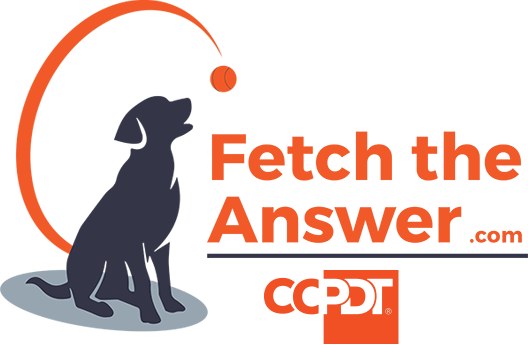
 FetchTheAnswer.com
FetchTheAnswer.com
